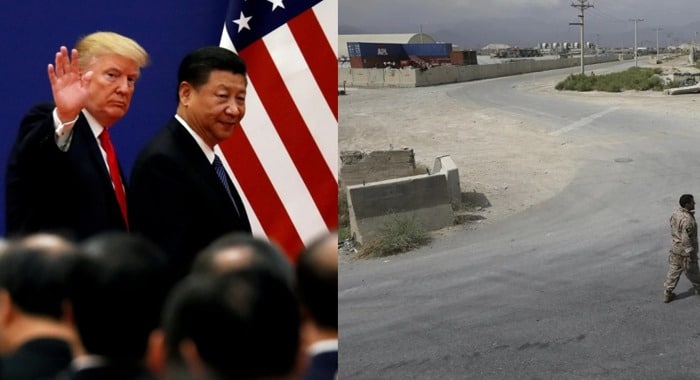China on Friday called for respect for Afghanistan’s sovereignty following remarks by former U.S. President Donald Trump, who suggested that Washington may seek to regain control of the Bagram Air Base, which was vacated during the U.S. withdrawal in 2021.
Chinese Foreign Ministry spokesperson Lin Jian told reporters that the future of Afghanistan should remain in the hands of the Afghan people. He warned against actions that escalate tensions or create new confrontations in the already fragile region.
“We believe that the sovereignty, independence, and territorial integrity of Afghanistan should be respected. All parties should play a constructive role in promoting regional peace and stability,” Lin said.
Trump, speaking at a political event on Thursday, said the United States was exploring the possibility of returning to Bagram Air Base, citing its strategic location near China as a key reason. He specifically mentioned that the base is close to where China is believed to manufacture its nuclear weapons.
The remarks drew a reaction from the Taliban, which governs Afghanistan. Zakir Jalali, a senior official at the Taliban’s Ministry of Foreign Affairs, dismissed Trump’s comments as part of a “bargaining tactic,” while referring to him as a “successful businessman” known for strategic negotiation rather than policy continuity.
Earlier this week, CNN, citing three unnamed sources, reported that Trump has been pressing his national security aides for months to find a way to re-establish an American presence at Bagram. The move, if pursued, could significantly shift regional dynamics and heighten U.S.–China rivalry over influence in Afghanistan and Central Asia.
China’s latest statement underscores growing concern in Beijing over any potential U.S. military re-engagement in Afghanistan, particularly one that may be framed within the broader context of strategic containment of China.
While the Taliban has publicly downplayed the significance of Trump’s remarks, analysts say any U.S. return to Bagram would almost certainly be met with resistance; not only from Afghanistan’s rulers but also from regional powers like China, Russia, and Iran, all of whom oppose a renewed Western military footprint in the region.





